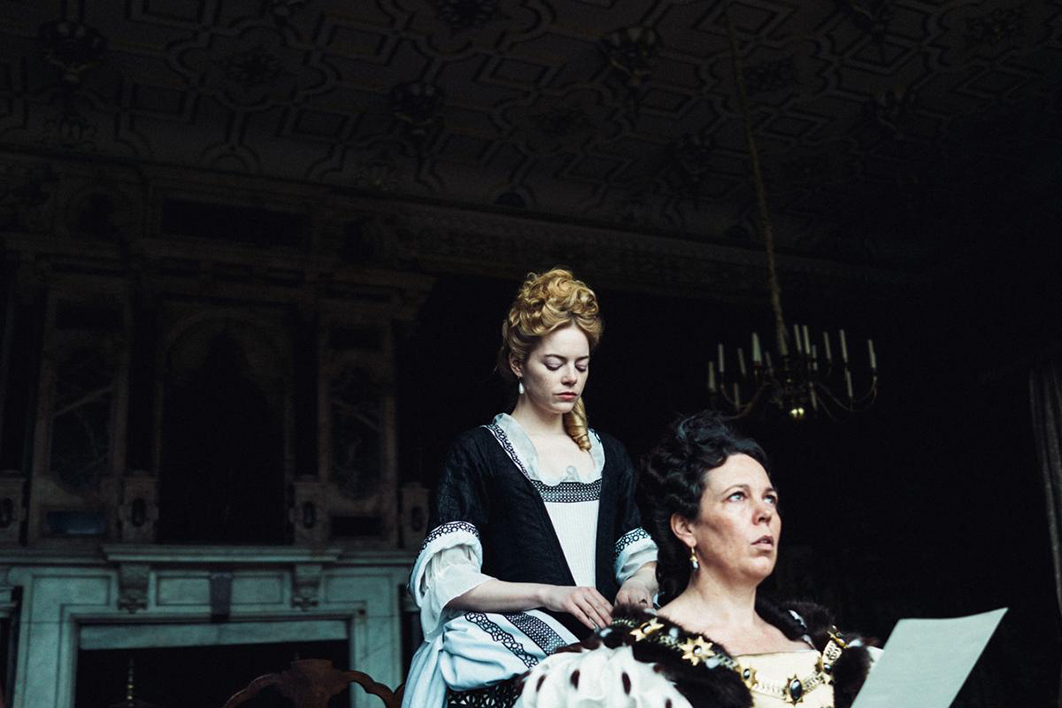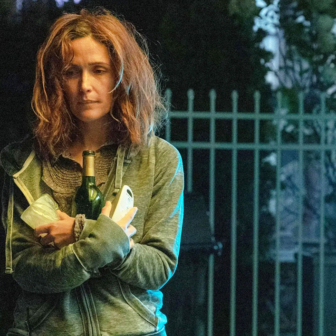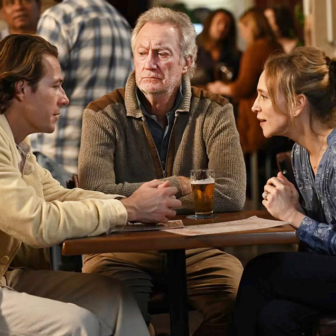What is it about royalty that makes for such absorbing film-making? Is it the disposition of power, or the potential for corruption, or the intricacy of relationships at the mercy of power and corruption, or even the scope for the most lavish production and costume design? Or is it simply — and complexly — an amalgam of all these and more, especially when some of cinema’s own royalty are added to the mixture? As the young might say, what’s not to like?
In recent times, Netflix has scored a resounding triumph with The Crown, about to begin its third series, and TV networks have screened three seasons of Victoria, the three-part docudrama Elizabeth I, and numerous series about the contemporary royals. On the big screen, though, the period pieces are probably the most vivid, and two lavish productions highlighting regal women have appeared in Australian cinemas within weeks of each other. These are The Favourite, which opened on Boxing Day, and Mary Queen of Scots, a mid-January release. The former highlights the early-eighteenth-century reign of Queen Anne, the latter the tricky relationship between its eponym and Elizabeth I, both of whom have in the past attracted many formidable actresses, including Katharine Hepburn (Mary) and Bette Davis (Elizabeth).
Both the new films are concerned with the potentially lethal relations between a monarch and those around her, whether on a personal level — and The Favourite especially gets very personal indeed — or in uneasy political times. The threat of war, civil or otherwise, and the difficulties confronting women in these majestic roles make for absorbing drama, and offer rewarding roles for some of the most compelling performers in film today.
Queen Anne, the last of the Stuarts, reigned from 1702 to 1714, during which time England and Scotland became Great Britain, and her majesty’s government was attempting to restrain French and Spanish military interventions. My only serious criticism of the film is that it might have provided a more clearly defined political and military setting for the wittily and uncompromisingly conceived personal dealings that account for its narrative core. I am not sufficiently well informed about the facts of Anne’s reign, domestic or political, to know just how accurate the film is in its representation.
As we know, Shakespeare often played fast and loose with the facts in his history plays, and that doesn’t trouble most of us when we respond to what he has made of them. Without suggesting that The Favourite aspires to this level, I would say that the innovative Greek director, Yorgos Lanthimos (of The Lobster fame) has made an absorbing drama of the relationships at the film’s heart, and of the power tussles on every side of them.
The Favourite opens as a very severe-looking Anne (Olivia Colman) is having the finishing touches applied to her dress. She turns to smile at Sarah, Lady Marlborough (Rachel Weisz), and their intimacy is at once implied, with the hint that Sarah may well have the upper hand. The threat to whatever is the nature of their relationship is introduced when Abigail (Emma Stone), a mud-spattered young woman who has fallen out of a carriage, arrives at the palace and proves to be a relative of Sarah. She seeks employment at the palace and the basis is set for her to work her way up the hierarchy until she will challenge Sarah’s privileged position with the Queen.
In witty and telling scenes, Anne deals with her ludicrously bewigged politicians, including the foppish Harley (Nicholas Hoult), described as “a useful ally but a dangerous enemy.” There is talk of increased land tax to cover the expenses of war, and Harley warns the Queen that the people are turning against her because of the way the war is going. But it is almost as if Lanthimos regards such matters as little more than background for the key figures in the film’s tapestry — the three women — and what is going on among them.
Early on, it is startling to hear how Sarah talks to Anne. “You look like a badger” is her response to the Queen’s make-up, or later: “You do not lisp, but you are mad.” Only Sarah can address her in this way, and this familiarity hints at the intimacy on all levels that exists between them — and also the sense of Sarah’s having the upper hand, at least behind closed doors. Her primacy is first threatened when Abigail, still at servant level, finds a herbal remedy for the Queen’s inflamed legs.
Outlining the major plot trajectory in this linear way undervalues the film’s richly textured way of acquainting us with the pushes and pulls of power. A shooting party scene with Abigail and Sarah competing for kills says more than mere words, as do those shots of the Queen’s increasingly bedraggled appearance as her health declines. But mention of words reminds me that they are anything but “mere” in this film, both in the sort of outspokenness attributed to the women and in the prevalence of words beginning with “f” or “c,” not to forget a tasteful reference to “fingers in your arse.” These usages are shocking but appropriate for making us aware of the kind of life — a life often of vicious power play — that is being conducted in the exquisite interiors of the palace. As well, there are locutions (such as “just the ticket!”) that may not have been common at Anne’s court but help effect an easy compromise between her time and ours.
The performances of the three women are beyond praise, and they could easily find themselves in competition with each other at Oscar time. Colman, who came unforgettably to attention in the first series of Broadchurch (2013), has since established herself as one of those actors who so effortlessly inhabits a role that one can scarcely imagine her as having any other existence. As Anne, she bravely submits to a physical journey from the plain to the grotesque and is moving in her attempts to grapple with the facts of her fraught existence. Her latest royal incarnation is as the older Elizabeth in the third series of The Crown. Weisz and Stone imbue their portrayals of Sarah and Abigail with exactly the right blend of ambition, the exercise of power and the tug of sexual urges. Both have already been awarded Oscars, so perhaps they could stand aside and leave the way open for Colman to join them?
Robbie Ryan’s stunning cinematography, with fisheye lens distortions that seem to encircle the constrained lives of the palace, and Fiona Crombie’s equally ravishing production design make this a film that is as much a treat for the eye as it is for the mind. •




